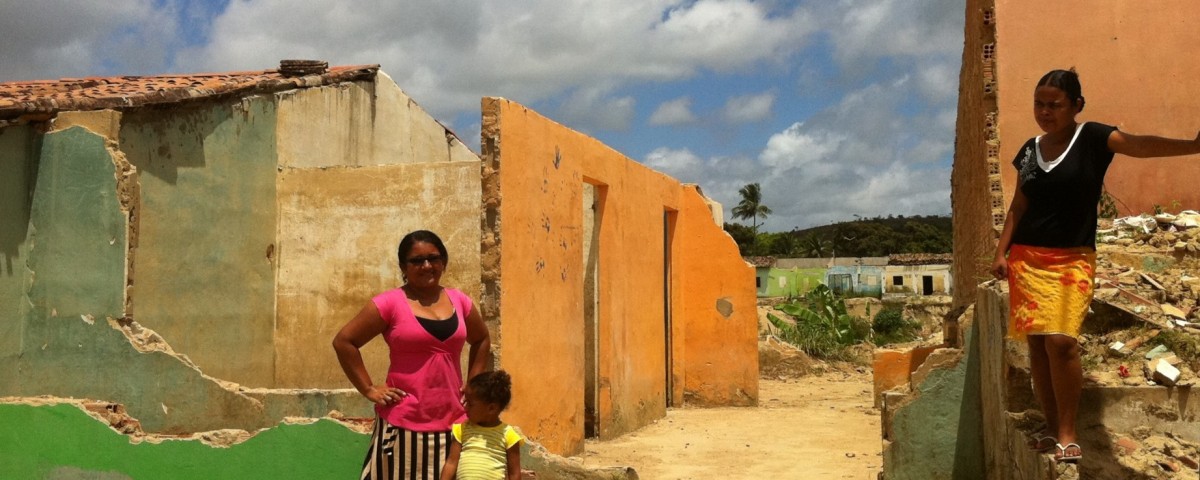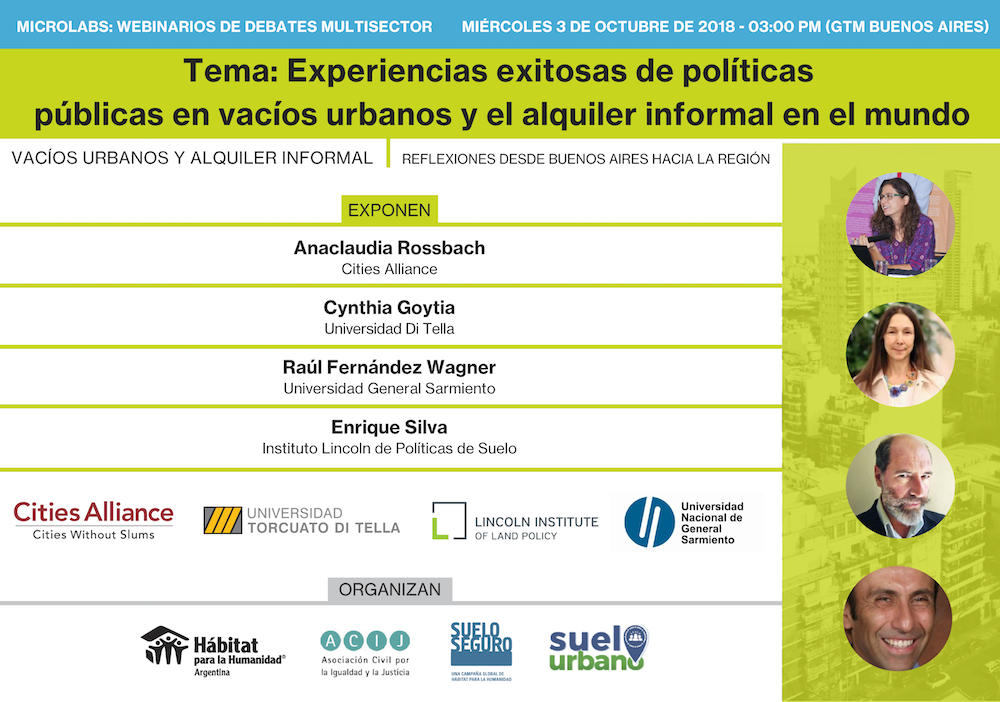
Bienvenido a Suelo Seguro, una campaña global de incidencia para mejorar el acceso a suelo para vivienda.
7 marzo, 2016
Celebrando el Acceso a Suelo para las Mujeres en el Dia Internacional de la Mujer
8 marzo, 2016Puedes utilizar tu voz para apoyar políticas, leyes y sistemas que promuevan un acceso equitativo y justo a suelo para vivienda para las mujeres, y los grupos más vulnerables. Sin suelo seguro no hay vivienda adecuada, y la vivienda adecuada es uno de los derechos sociales y económicos de toda persona. Unirte a Suelo Seguro significa que tu voz será escuchada en todo el mundo. Juntos, vamos a crear un mundo en el que todas las personas tengan un lugar adecuado para vivir.
Desde la Oficina de Relaciones con Gobierno e Incidencia de Habitat para la Humanidad Internacional, Ann Myers, Directora de la Campaña Global Suelo Seguro; Dan Petrie, Director de Asuntos Globales e Incidencia; y Carolyn Tilney, Especialista en Proyectos, nos invitan a través de tres artículos a reflexionar sobre el significado que tiene el acceso seguro a suelo para las familias más pobres y las mujeres; lo que implica Suelo Seguro en contextos diversos como Brasil, Bulgaria, Cambodia, República Dominicana, Honduras, Kenia y Sudáfrica – que constituyen la primera ola de países involucrados en la campaña global; y sobre los desafíos de la urbanización para el desarrollo sostenible.
Tus comentarios serán muy valiosos para hacer de Suelo Seguro un movimiento global, y el acceso a suelo y la vivienda dos pilares del cambio frente a la desigualdad en la región, contribuyendo a que millones de familias puedan salir de la pobreza.
Title: Keeping land for shelter at the center of the New Urban Agenda
By: Dan Petrie, Director, Global Affairs and Advocacy, Habitat for Humanity International
In the year 1976, big things were happening. Apple, Inc. began in a garage in California, the first Star Wars movie was on the verge of its release to the public and, with one third of the world living in urban areas, governments around the world were just beginning to feel the effects of rapid urbanization. Today, Apple is the largest and most recognized IT company in the world, the seventh movie in the Star Wars saga became the highest grossing film of all time, and more than half of the global population – roughly 3.5 billion people – live in urban areas.
Much has changed in the past 40 years, yet governments continue to struggle to meet the housing needs of rapidly urbanizing populations. An astounding 54% of the global population now live in cities – and that number continues to rise. One in five people – 1.6 billion people worldwide – lack access to adequate shelter.
In 1976, the United Nations held the Habitat I, the first global conference on housing and sustainable urban development, to establish a plan of action for human settlements in the midst of rapid urbanization and development. In October 2016, leaders from around the world will convene in Quito, Ecuador for Habitat III, the third of the Habitat conferences, to reinvigorate the global commitment to sustainable urbanization.
Habitat III is not merely a conference; it is a pivotal moment in history that will determine how governments, civil society, academic institutions and private actors will respond to the challenges of urbanization in the decades ahead. Habitat III will produce an outcome document called the “New Urban Agenda,” a plan that will help define urban priorities and shape implementation of sustainable urban development for the next 20 years.
Sustainable urbanization includes a broad range of issues, including transportation, infrastructure, environment, and others, but to be successful, urbanization plans must meet the housing needs of urban residents. Without the basic human right of adequate shelter, the billions of current and future urban residents will not be able to thrive and contribute to a vision of sustainable cities.
By 2050, the global urban population rate is expected to rise to 66%. Today, we have the opportunity to shape the conversation that will take place 20 or 40 years from now – will the number of urban dwellers without adequate shelter have worsened? Or will we be looking back at the progress we’ve made?
Solid Ground is working to ensure that access to land for shelter remains a focal point of the New Urban Agenda. Read more about Habitat’s policy recommendations and join the movement.









